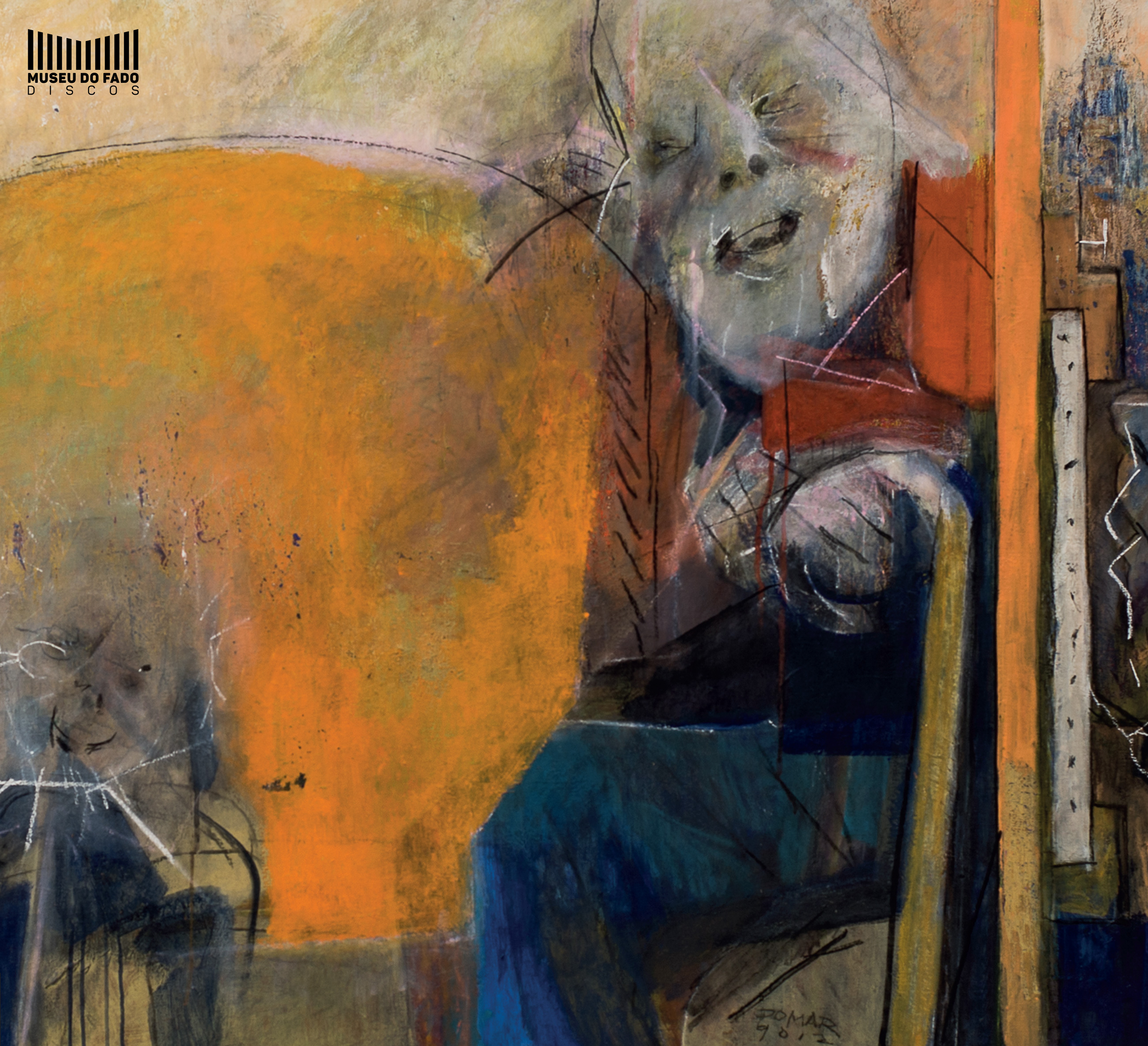Know more:
Camané
(N. 20 December, 1966)You may not have heard of him before, but once you've heard him sing, you'll want to hear more.
Camané is the leading male singer in the new generation of stylists in Portugal's native urban song, Fado, ever since his first album came out in 1995 - and one of the few men working within this most tricky field.
Camané is also one of the most outstanding Portuguese singers to have come out of any generation; a voice so smooth and soulful, so impassionate and yet controlled that you wonder how such wise and weary vocal stylings can belong to someone so young.
That's probably because Fado runs through his blood from birth. We're about to share a secret with you if you promise not to tell: Camané was a child prodigy who sang Fado in his early teens.
It all began when seven-year old Camané was grounded at home with the flu and, being bored stiff, rummaged through his parents' record collection. All they had was Fado, so that was all he heard. And he loved it. Then he started singing it. Initially it was all in good fun, but after he won an amateur contest it became obvious there was more to it than that. Camané had his run as a child singer, and eventually grew out of it. Yet he never grew out of Fado. How could he?
So, eventually, he got right back into it. In his late teens by then, Camané knew he had the voice but also knew he wanted to establish himself as a serious artist, erase all memories of his "early years". He decided to pay his dues as all good Fado singers should: singing live as much as he could, learning the so-called tricks of the trade, performing as guest artist in theatrical revues (directed by Portugal's leading theatre director Filipe La Féria), doing the Fado club circuit… And he has never looked back.
It was during this period that he met José Mário Branco, one of the most respected and prestigious singer-songwriters in Portugal - and one known for his remarkably intelligent and modern approach to musical traditions. The two men hit it off instantly and vowed to work together.
In 1994 Camané signed with EMI. By then he'd been singing Fado for 20 years, professionally as an adult since the mid-eighties. With Branco as producer, he decided to use his first album as a sampler, recording it live as if he were singing a set in a fado club. And so it was, with an improvised club and a portable recording studio at the Lisbon offices EMI was working out of at the time. "Uma Noite de Fados" was released to critical acclaim in 1995, proving the prodigy had matured beyond everyone's expectations. Camané was no flash in the pan; in him, Fado, then an ailing niche song, found the perfect rejuvenator, a torchbearer ready to take it to the next level.
He did, three years later. Meanwhile, he had performed live extensively, both in Portugal and abroad (France, Spain, Italy, Holland), but "Na Linha da Vida", his second album, again with Branco as producer, showed Camané taking risks. The album showcased his growingly personal interpretative style, introducing his own material instead of relying mainly on more traditional Fado stylings, using a jazzy double bass as a rhythmic anchor. The critics knew he was on to something and the album ended up making nearly all of the year-end top-ten "best of" lists. The audiences began to listen intently. Foreign territories -- Belgium and Holland first, Korea later -- recognised the talent and released the album, accompanied by short tours of those countries, along with performances at festivals in France (Rennes' Tombée de la Nuit and Paris' Les Mediterranées à l'Européen).
In 2000, we were all rewarded beyond our expectations by Camané's third album, "Esta Coisa da Alma", released simultaneously in Portugal, Belgium and Holland. Branco was at the helm once more; and yes, Camané was maturing right there in front of our eyes. At first, it looked as if the album was a step back, because he wasn't relying as much on new material as on old standards with new lyrics. But soon you realised that sometimes you do need to step back to move forward -- and "Esta Coisa da Alma" was a giant leap, with Camané proving himself more than a singer, an interpreter with a finely-tuned ear to every emotional nuance of the poem.
"Brilliant" was too restrictive to describe it, as audiences who heard him sing live testified by selling out venues in Holland, Belgium, Spain, Switzerland or France. And yes, he was finally popular -- the album won nearly every critic's and public choice awards in Portugal. By year's end "Esta Coisa da Alma" had gone Silver, the first Fado album to do so in Portugal in many years.
But was it still Fado? Purists see Camané as the finest male Fado singer in years and one of the finest of the 20th century; yet they will allow that what he is doing isn't conservative or even "pure" Fado. Modernists, on the other hand, think he's extraordinarily innovative, even while conceding that he hasn't strayed too far from the standard formula of voice, two guitars and one bass. Both are unanimous in that he is a great singer. And, really, when he's got such a voice combined with such an interpretative power, you could be hearing him sing the phonebook and you'd still be transfixed by it. (Rest assured, though. Camané wasn't singing the phonebook.)
"Pelo Dia Dentro", his fourth album, released in 2001, was his most mature and evocative. No point in messing with a winning team, so José Mário Branco returned yet again to produce a selection of carefully selected modern-day or classic poets set to ten traditional Fado standards, and five new songs. Again, the album was better than you thought it would be: when was the last time you've heard of such a career arc, where you're still going strong by your fourth album?
While touring the "Pelo Dia Dentro" concert both in Portugal and abroad, Camané released "The Art of Camané - Prince of Fado" (2003), a greatest-hits album specifically designed for the international market featuring tracks from the four records, some of which re-recorded. At the end of 2003, his first live album followed: "Como Sempre... Como Dantes", a 2-CD set that shows Camané's different approaches to performing Fado according to the night's mood and the size of the venue: one CD recorded live in front of a large audience in a theatre, the other in a series of intimate performances in a small Fado club. With sales reaching over 20,000, it became a Gold record and his biggest seller so far.
Next came a surprise: a stroll away from Fado into pop music furing a short residency at the S. Luiz theatre's intimate Winter Garden. The 2004 series of concerts, titled "Outras Canções", saw Camané accompanied by a full band and singing some of his favourite tunes by Portuguese and Brazilian pop composers.
His foray into pop music continued with his participation in the Humanos project: songs that the late António Variações (one of the most innovative and popular pop singers of the 1980s) demoed but never recorded, arranged in his spirit and performed by a "supergroup" of contemporary musicians. Camané was one of the three featured singers on "Humanos", a #1 chart album released at the end of 2004, and subsequent short series of concerts in 2005, alternating with his own Fado concerts in Portugal but also in Canada, Luxembourg and France, crowning the year by winning the 2005 Amália Rodrigues Prize for Best Male Fado Singer.
2006 has been a quiet year so far - with his first concert DVD "Ao Vivo no S. Luiz" recorded during his tour to promote "Como Sempre... Como Dantes" and acclaimed performances in Italy and Finland.
2007 began with the rehearsals for “Outras Canções II”, a show made in April/May at S. Luiz Theatre, where he sang Brel, Sinatra and Jobim, among others.
After a year full of concerts not only in Portugal, but also abroad, Camané released, in April, his latest album called “Sempre de Mim”. With production from his co-worker from all time, José Mário Branco, this record has been acclaimed by the press as Camané’s best work ever. The public shared the same opinion as them, since just a week from it’s release, “Sempre de Mim” was awarded with a Gold Record. With 16 songs, ten of them traditional Fado (one theme is actually from Alain Oulmain, late Amália Rodrigues composer) and three new songs, it was presented live in the charismatic venue Coliseu dos Recreios in Lisbon to a sold out audience.
Camané was also chosen to showcase at the prestigious and biggest World Music event WOMEX 08 in Seville.
In March 2009 Camané was nominated to the “Globos de Ouro“ (Portuguese Golden Globes) in the Best Interpreter category, and, two months later, he and the pianist Mário Laginha accompanied by the Lisbon Metropolitan Orchestra sold out two nights at the prestigious Centro Cultural de Belém with the show “Carta Branca a Camané”.
In July Camané released his second DVD - “Camané ao Vivo no Coliseu - Sempre de Mim”, a wonderful memory of the magical night that happened in May 2008 at Coliseu dos Recreios (Lisbon). In between some various projects Camané continues presenting live his latest album, not only in Portugal but also abroad, in countries such as Argentina, Chile, Uruguai, Peru, Poland, France, Switzerland, Hungary and Bulgaria.
Meanwhile, in September 2010, Camané released his 6th studio album, “Do Amor e dos Dias”. With 18 songs and produced, as usual, by José Mário Branco, “Do Amor e dos Dias” went straight to #1 of the Portuguese Sales Chart and has already become a Golden Record.
This album’s presentation occurred at Centro Cultural Belém with a sold out audience.
Camané launches in late April 2013, a new album titled "O MELHOR | 1995-2013 “, work that brings together the great classics of his career since the release of the first album of original 1995-2010". The presentation of this album took place at the Centro Cultural de Belém, Lisbon with a sold out audience. A powerful voice and unmistakable Camané invaded the auditorium, leaving the audience CCB completely surrendered to his "Best". At the end of May, the album "The Best 1995-2003" is also published in Spain.
Camané now see your "Best" published in Spain, anticipating his return to the stage of the Spanish capital on the occasion of the 3rd Edition of the Festival of Fado in Madrid in June 2013 at the Teatro del Canal in Madrid.
In 2014 he tours fifteen Portuguese cities, a European tour (Germany, Holland, Belgium, Macedonia, among others) and a special visit to the United States.
2015 begins with his first two performances in Mexico at the "Merida Fest" and in March debuts his first official North American tour in the United States and Canada. 6 concerts at exceptional capacity, the tour travels East to West delighting audiences in New Bedford [The Zeiterion], Newark [NJPAC], Toronto [Winter Garden], Montreal [Theater Outremont], San Francisco [SF JAZZ] and Vancouver [Kay Meek Center] who surrender to his emotion and authenticity on stage. The beautiful performances exceed all expectations and mark the first Performing Arts Center tour by a male Fadista in North America.
In April 2015, Camané release new album: "Infinito Presente". Although it was not planned this way, “Infinito Presente” soon shaped itself as a celebration for the 20th anniversary of Camané’s debut album Uma Noite de Fados. But those 20 years that have indisputably established Camané as the greatest fado male singer of his generation also mean that it is the right occasion to celebrate his artistic association with producer José Mário Branco. While preparing the repertoire for this new album, both of them would then be taken aback by the suddenly obvious revelation that there was a nuclear theme to it: Time.
Few young singers dared to live among elders and lend their voices to a song style that was commonly believed to exist only in the past. Camané assumed fado was greater than this limited vision. And he lived up to his believes, even more admirably, sticking to his guns, singing his heart out accordingly to the traditional repertoire. Camané rose to guarantee that while fado caught up with a younger and freer spirited generation it did not need to spur a revolution.
That is why we can argue that Infinito Presente is 20 years old, in a way. It listens like the latest step from a continuous and solid path that Camané has developed with José Mário Branco, creating a sound that is instantly recognizable as his own. And mind you that is no easy feat when Camané stems from traditional fado and without turning away from its classic instrumentation.
All of the 16 tracks recorded by Camané in "Infinito Presente" share this quality he calls “a way to reach home”. That is the greatest achievement of this album and these 20 years travelled alongside José Mário Branco: we approach Camané as if we were usual guests to his home, as if his home was actually a little bit our own.
In 2017 he released a tribute album to Alfredo Marceneiro and, in 2019, "Aqui estáse sossegado", a disc in which he joins Mário Laginha to recreate some themes by Marceneiro, Amália, Carlos Ramos, among others.
Source:
Alfredo de Almeida Management
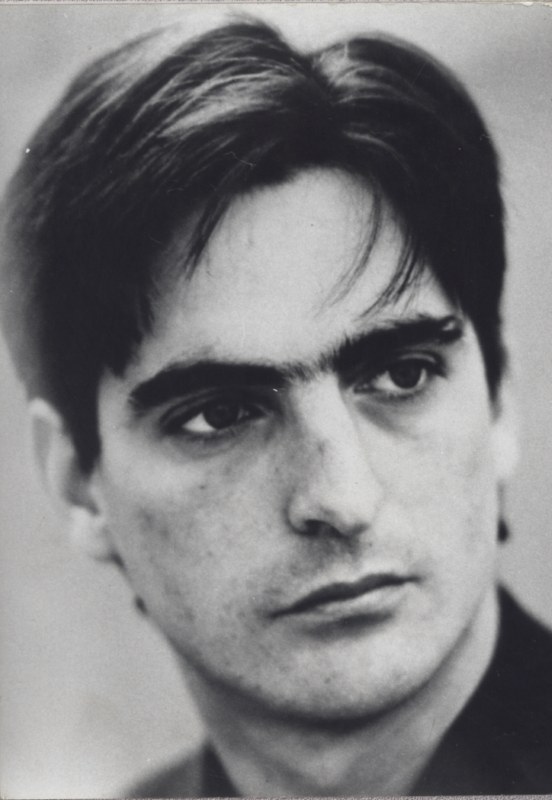
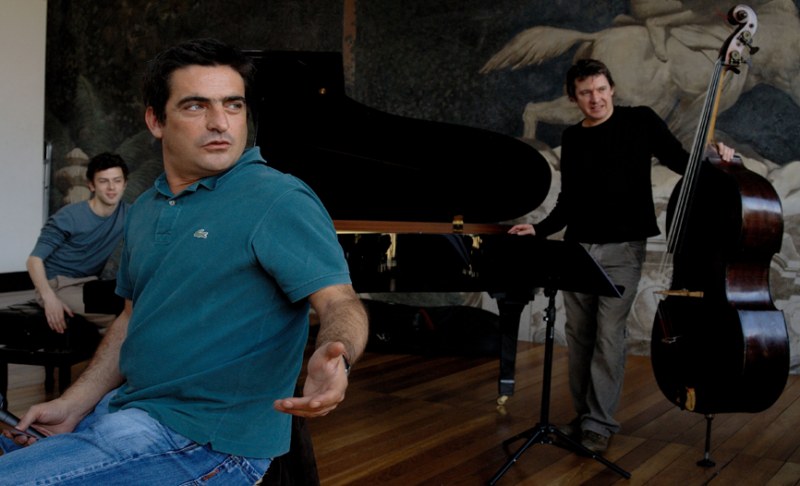
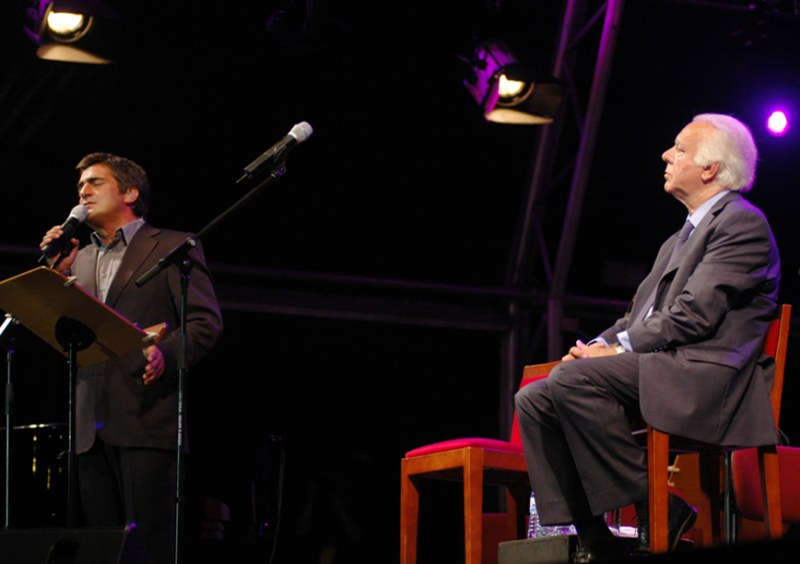
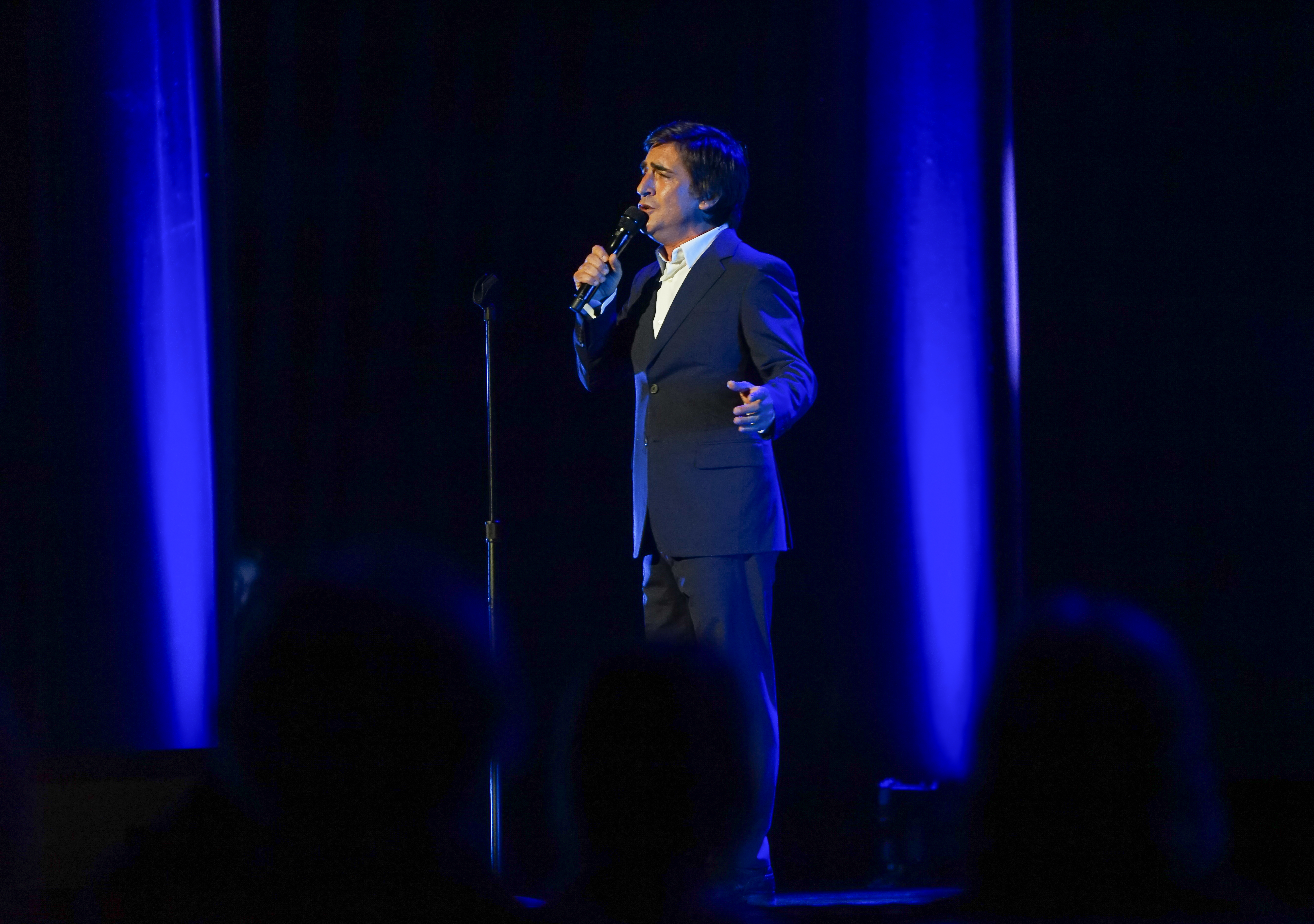
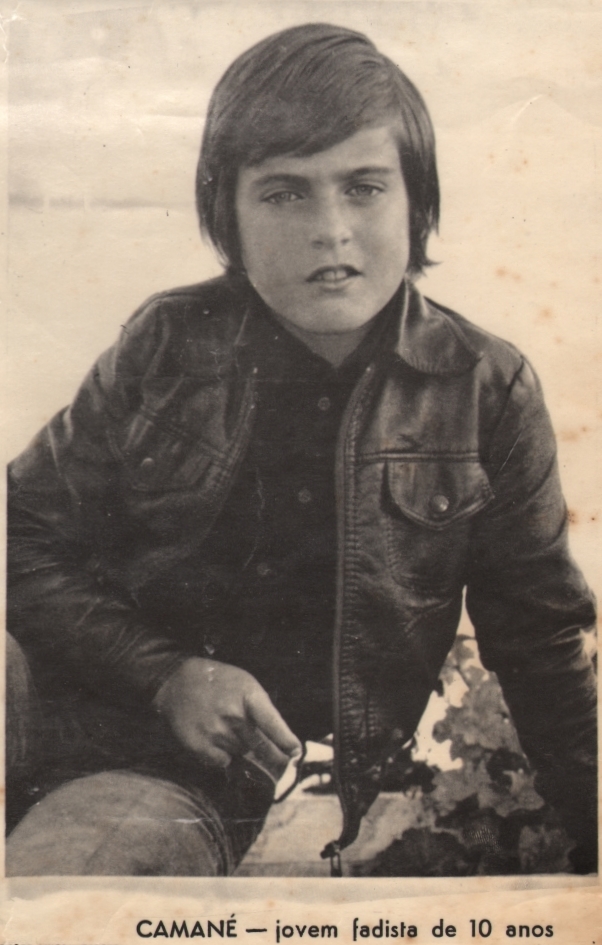
-
Ciúmes da Saudade Camané (Manuela de Freitas / J. A. Sabrosa)
